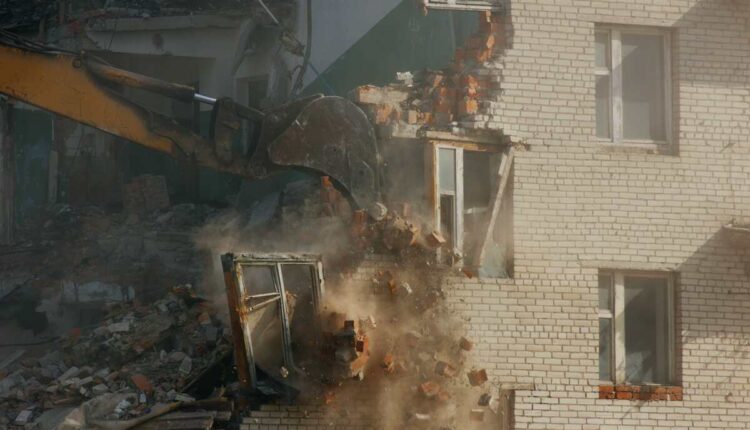Demolition experts play a crucial role in shaping our built environment, including project evaluation, developing safety protocols, and understanding construction materials. Find the best Demolition Rancho Cucamonga.
Engineers or construction specialists must possess an educational foundation in engineering or construction and undergo specific training programs focused on aspects such as handling explosives. Their responsibilities also encompass hazardous waste disposal and ensuring regulatory compliance.
Education and Training
Demolition experts specialize in dismantling, razing, or wrecking structures and other physical objects to comply with local regulations and standards. They oversee this process to ensure it runs safely and efficiently while complying with any relevant safety precautions or standards.
Aspiring demolition experts tend to pursue degree programs focused on engineering and construction as well as relevant technical knowledge, while they must also undergo intensive on-the-job training with experienced professionals to develop practical skills and understand demolition techniques. Certification and specialized training may also be necessary in order to handle various materials like asbestos and lead safely.
These specialists work alongside engineers and other construction professionals to draft detailed plans for demolition projects before beginning work. In some instances, they may need to secure permits before commencing their activities and must implement strict safety measures on the job site. They also conduct extensive assessments of structures they’re about to demolish to identify the most efficient way of demolishing them.
To succeed at physical labor, one needs experience with general physical labor and an enthusiasm for taking on dangerous outdoor tasks in any weather condition. They should also be capable of operating an array of tools and machinery, from hand hammers to large machines like bulldozers and cranes.
Demolition Techniques
Demolition experts use various techniques to bring down structures. They may dismantle buildings manually using handheld tools like jackhammers or sled hammers; this method is less costly but requires more time-consuming efforts compared with using machinery for dismantling purposes. If hazardous materials such as asbestos or lead are present, extra precautions must be taken.
Mechanical demolition uses heavy equipment like excavators, cranes, and wrecking balls to pull or push buildings down quickly but safely. Mechanical demolition may be faster but also poses a more significant risk, including falls from elevated work platforms and crush injuries from large machinery. Specific structures like chimneys or smokestacks, bridges or skyscrapers may require controlled explosions for their destruction; demolition experts typically plan these controlled explosions carefully by choosing appropriate explosives to use and placing them accordingly within buildings, as well as drilling holes in order to mark which parts should be targeted when this method should take effect.
As part of their preparations for a demolition, demolition experts first review an exhaustive set of structural blueprints to identify critical elements and areas that require blasting in addition to those on the blueprints. After cutting and tying specific fuse lengths to time the explosions, safety cones are installed around the blasting site in order to mark its perimeter and keep records compliant with state and federal laws regarding explosive inventory, date acquired, and method used.
Tools of the Trade
Demolition is no simple task and requires special tools io be completed successfully. Depending on the nature and size of the structure being demolished.
, power and hand-held machines may be employed
Many demolition jobs involve using larger machines like cranes, backhoe loaders, and bulldozers to break apart concrete structures and level buildings to the ground. Ladders may also be necessary to access areas not reachable by foot, while wheelbarrows or carts come in handy when transporting debris off-site for disposal.
On smaller jobs or when power tools aren’t required, demolition workers can rely on handheld tools such as hammers and saws to cut through metal or wood materials. Hydraulic hammers are especially helpful in breaking up concrete and other hard materials by using pressurized hydraulic oil to break them up and split apart their structure. Wire cutters are another essential piece of machinery, as most structures will require their wiring removed before any demolition can begin.
Explosives may be needed for large demolition projects, and only experienced demolition experts are capable of safely using explosive techniques for these tasks. Projects using explosive techniques require careful planning and coordination between construction teams as well as strict adherence to safety protocols; their responsibilities vary, but all include safely dismantling structures to make way for new development projects.
Safety
Safety is of utmost importance for demolition specialists, who must possess extensive knowledge of all aspects of workplace safety. This involves understanding and enforcing strict regulations, working closely with engineers and construction teams on designing detailed demolition plans and overseeing safety measures, preparing emergency response plans, and using various tools and equipment ranging from handheld hammers to sophisticated heavy machinery. Furthermore, specialists must possess the ability to calculate precise amounts of explosive material required for controlled explosions so as to place charges that will lead to successful strategic detonations.
As part of the demolition process, demolition workers must also assess whether any flammable or hazardous chemicals are stored within the structure being demolished, taking appropriate measures to safeguard workers and those nearby from exposure to such materials or chemicals. Furthermore, if any functional electric, gas, water, steam, or sewer lines exist within this structure, they need to be shut off before starting their demolition works.
Due to the inherent dangers involved with demolition work, its risks can often be extreme and sometimes deadly. Therefore, an effective demolition expert must remain calm under pressure, have excellent concentration skills, and manage emotions well while exercising both deductive and inductive reasoning when faced with challenging situations.
Read also: How To Apply Window Film


